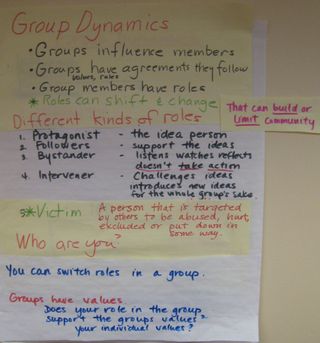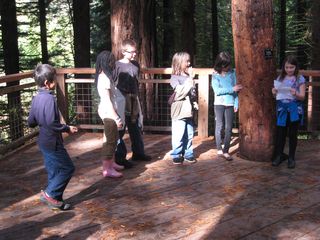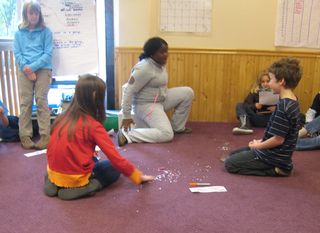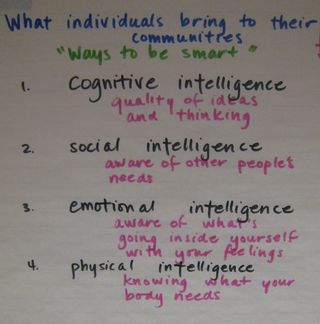Group Dynamics

The Social / Emotional Curriculum in Opal 3
Over the course of the last month, Opal 3 has been fortunate to have Judy Graves come into our classroom once a week to discuss Group Dynamics. On the first day, Judy explained that people make careers out of studying Group Dynamics and that it is a topic that people keep revisiting throughout their lives.
In communities, people take on different roles. At first Judy introduced us to four of the roles:
Protagonist – The idea person
Followers – People who support the idea and help make it happen
Bystander – Someone who listens, watches and reflects but doesn’t take action
Intervener – Someone who challenges the original idea and introduces a new one
She emphasized that all of the roles are important, no role is more important than the others. Each role has the potential to build community or limit community, and when you realize what role you are in, you may also realize how you can switch roles.
As a class we read some picture books and identified which characters were in each role in the story. We also had a chance to act out scenarios and to figure out who was taking on the different roles in the scenarios.

These students are picking teams to play soccer. Who were the followers?

These students are throwing materials on a classmate’s artwork in the studio. Who was the protagonist?
The next time Judy came to talk to us about what individuals bring to their communities, different “ways to be smart.”
Again we read stories to help us see characters using their different intelligences in their interactions with others and discussed how each of the intelligences supported the communities in the stories.
What does being able to name the roles people take on in a community and the intelligences they bring do to support the Opal 3 learning community?
Understanding how groups function has been empowering for many of the students. I have seen students notice and name a Protagonist. In doing so, they can see if they were a Follower or a Bystander. In some cases, just naming the Protagonist has led students to become the Intervener and introduce a new idea.
Bystanders in the classroom have been empowered to become Protagonists as others are able to value what their gifts of reflection bring.
And recognizing someone for the specific kind of intelligence they use at any given time is a powerful way to recognize who they are.
What roles and intelligences do you bring to your communities?


